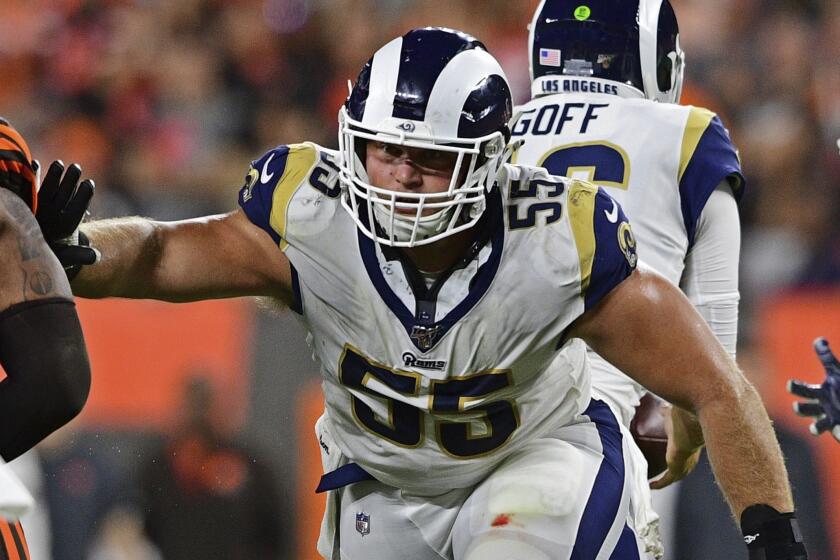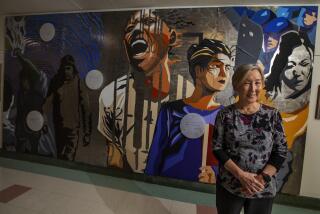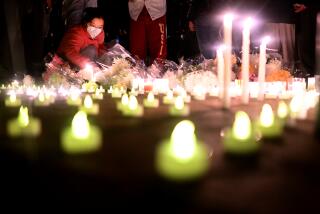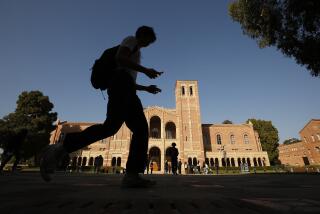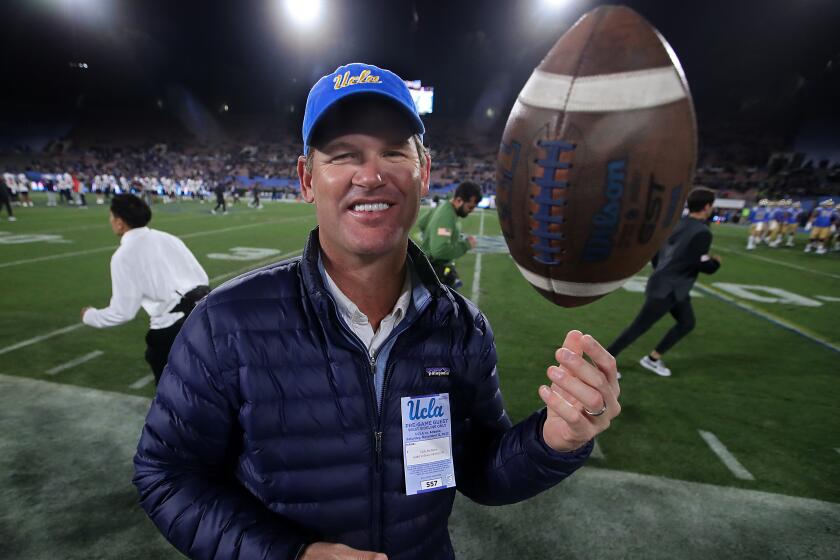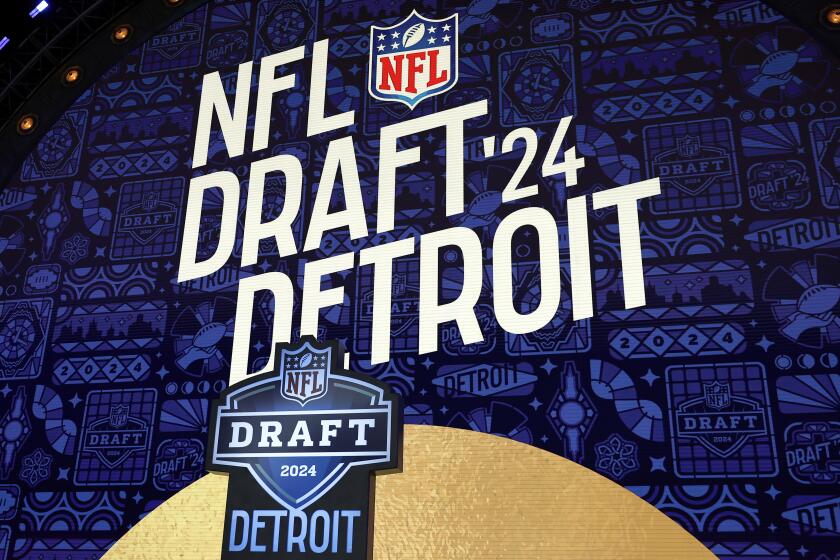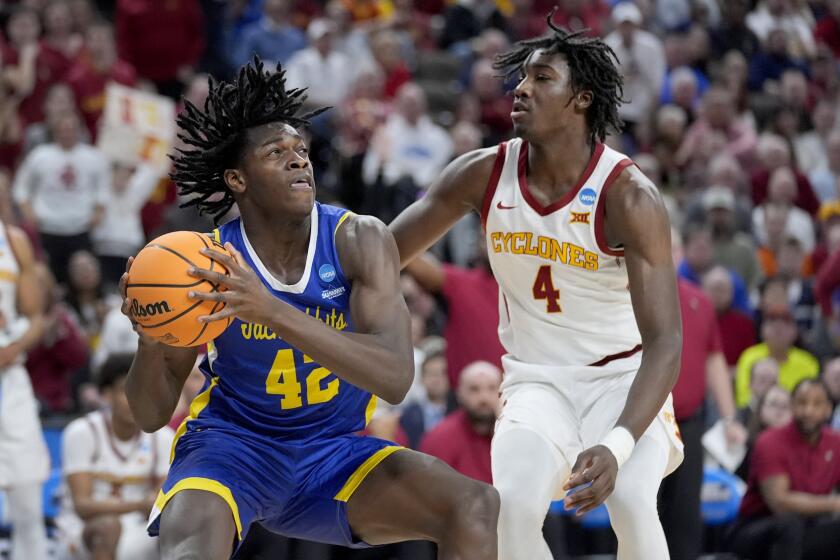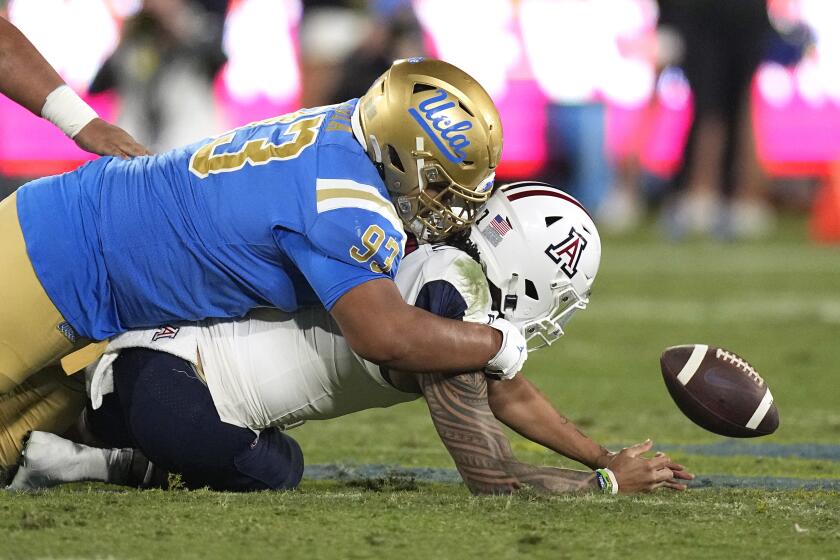UCLA’s Natalie Chou talks about racism and being associated with ‘the Chinese virus’
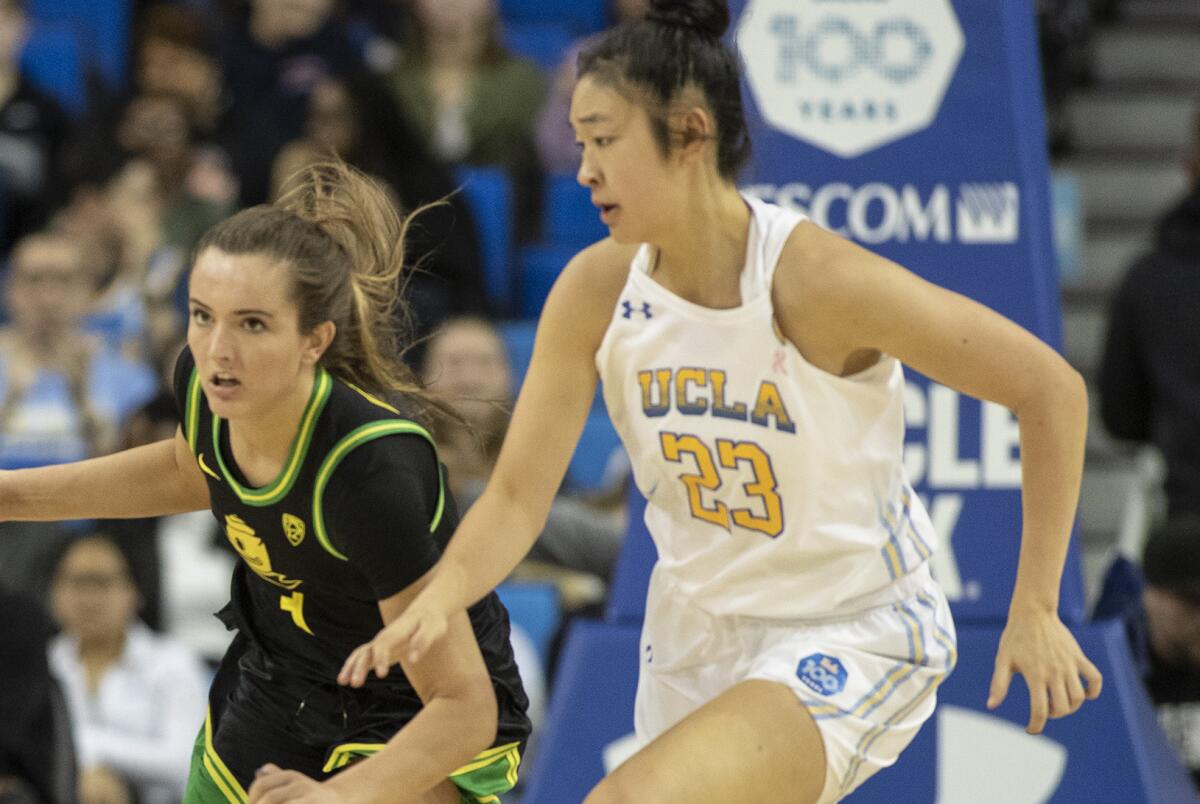
Even as she fumed inside, Natalie Chou stayed quiet. It was already an uneasy time.
Chou had returned to her Dallas-area home amid the novel coronavirus outbreak that had abruptly halted her season, never to resume, ending the dreams of a UCLA women’s basketball team that was among the best in the country.
Catching a deadly disease was just one worry. Chou was already self-isolating because of her skin color.
Her parents hailed from Beijing, and Chou felt the piercing glances and hostile energy of fellow passengers on her homebound flight from Los Angeles. She went to see friends but found no solace when an acquaintance among the group referred to the pandemic as “the Chinese virus,” apparently unaware of Chou’s heritage.
“The comments that they made really didn’t sit right with me,” Chou said, “and at the time I let it go because I’m not one for conflict.”
Chou left the gathering without saying anything. But as she reflected upon those hurtful words while also contemplating social media backlash that connoted a similar anti-Chinese sentiment, including a tweet from President Trump, Chou felt the need to express herself about the response to a virus that originated in Wuhan, China.
A look at what happened today, March 22, in sports history.
She composed a tweet that she sent out to her roughly 1,750 followers on Saturday.
“To call this pandemic anything other than the technical name it has been given, COVID-19, is disrespectful and ultimately racists [sic],” Chou wrote. “Calling it the ‘Chinese virus’ or anything of that sort creates unnecessary xenophobia for people who look like me. It takes literally no effort to call it by its correct name.
“Speaking for myself, I am scared to go to the grocery store or even outside to walk my dog because of the ramifications this has caused. I am now always alert and tense because I don’t know how people will respond to me. People from my community who look like me have now been placed in danger and are targets. We’re being attacked in places we should feel safe because of this ignorance.
“This country, along with the rest of the world, is facing a situation we have never seen before and adding these social tensions does not make it any better or easier. We are all going through this together. We need each other.
“Do better.”
Chou, a junior sociology major, punctuated her tweet with three red exclamation point emojis atop the message.
As of early Sunday afternoon, the tweet had generated more than 900 likes, nearly 200 retweets and 36 comments, mostly supportive. Chou had gained about 100 followers.
She said she felt empowered to speak out in part because of the UCLA alumni who have been pioneers on the issue of race. Jackie Robinson broke the color barrier in Major League Baseball. Kenny Washington and Woody Strode helped integrate the NFL. Arthur Ashe is the only black man to win Wimbledon, the U.S. Open and the Australian Open. Don Barksdale was the first black NBA All-Star.
Chou said the discrimination she’d encountered since the onset of the pandemic was something her black teammates and roommates at UCLA faced on an ongoing basis.
“Spending time with them and going out, I see this happen to them every day,” Chou said, “and this is maybe an inch of what they experience a day, and it’s just crazy how they’re so strong because I’m fed up and this is like one little thing.”
Chou also credited her coach, Cori Close, with helping her feel like it was OK to express her feelings about social issues and that people would listen and be receptive to her message. Were she still at Baylor, where she spent her first two college seasons, she probably would have remained silent.
“I would have been afraid of the backlash,” Chou said, “or it not being really accepted the way the people at UCLA do.”
Chou says she feels safer wearing apparel bearing the UCLA logo whenever she goes out near her home in McKinney, Texas. She covers up as much as she can, pulling her hoodie low, whenever she walks her dog, a Yorkshire Terrier-Pekingese mix.
With UCLA having moved to online classes for the spring quarter, Chou will be at home for the foreseeable future. Fortunately, she doesn’t have to go far to get a great workout. Her mother, Quanli Li, was a former professional basketball player in China. She’s been her daughter’s skills coach since Chou started playing.
Chou said she would soon commence workouts with her mother on a nearby outdoor court.
A part-time starter last season, the shooting guard averaged 7.6 points and 3.6 rebounds while making 31.1% of her three-pointers for the Bruins (26-5), who finished the season ranked No. 10 in the country.
Chou described herself as restless but said the pandemic had kept her mostly indoors for fear of being singled out because of her heritage.
“I don’t trust anyone right now,” she said, “and I don’t know how they’ll respond to me because many people just see this as the Chinese virus, so if they see someone who looks Chinese, I’ll be instantly discriminated against or stereotyped, so I don’t really go outside.”
A look at athletes, coaches and others in the sports world who have tested positive of the coronavirus.
Chou said Trump exacerbated the situation by referring to the disease as “the Chinese virus” in a recent tweet and news conference.
“I don’t want to get all political, but he allows this,” Chou said. “This is where all these people are getting these ideas, so once he said ‘the Chinese virus’ everyone else started saying it and they felt like they could because he was the first to say it. Terrible.
“I feel really pissed off because this country, this is a crisis, this is crazy, and then you’re adding racism and social injustice into this already crazy situation for no reason.”
The resulting paranoia has manifested itself in everyday situations like getting on an airplane, which Chou said had become uncomfortable.
“It was a little different than what I’m used to, like the body language and the vibe,” she said. “I just didn’t think it would be to this extent and I’m sure it’s probably going to get worse as time goes on.”
More to Read
Go beyond the scoreboard
Get the latest on L.A.'s teams in the daily Sports Report newsletter.
You may occasionally receive promotional content from the Los Angeles Times.

